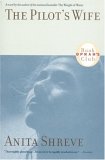Summary | Excerpt | Reading Guide | Reviews | Readalikes | Genres & Themes | Author Bio

"What is it, Mom?" she would say.
Like that.
"What is it, Mom?"
And then again, her voice instantly more high pitched.
"Mom, what is it?"
And Kathryn would have to kneel beside the bed and would have to tell her daughter what had happened.
"No, Mom!" Mattie would cry.
"No! Mom!"
When Kathryn opened her eyes, she could hear the low murmur of the television.
She got up from the kitchen chair and walked into the long front room with its six pairs of floor-to-ceiling windows overlooking the lawn and the water. There was a Christmas tree in the corner that stopped her at the threshold. Robert Hart was hunched forward on the sofa, and an old man was being interviewed on the TV. She had missed the beginning of the report. It was CNN or maybe CBS. Robert looked quickly over at her.
"Are you sure you want to watch this?" he asked.
"Please," she said. "I'd rather see."
She entered the room and moved closer to the television.
It was raining where the old man was, and later they printed the name of the place along the bottom of the screen. Malin Head, Ireland. She couldn't picture where it might be on a map. She didn't even know which Ireland it was in. Rain dripped from the old man's cheeks, and he had long white pouches under his eyes. The camera moved away and showed a village green with pristine white facades of buildings fronting it. In the center of the row of buildings was a sad-looking hotel, and she read the name along a thin marquee: Malin Hotel. There were men standing around its doorway with mugs of tea or coffee in their hands, looking over in a shy way at all the news crews. The camera slid back to the old man and moved in close to his face. He looked shocky around the eyes, and his mouth was hanging open, as though it was hard for him to breathe. Kathryn watched him on the television, and she thought: That is what I look like now. Gray in the face. The eyes staring out at something that isn't even there. The mouth loose like that of a hooked fish.
The interviewer, a dark-haired woman with a black umbrella, asked the old man to describe what he had seen.
It were moonlight with dark water, he said haltingly.
His voice was hoarse, his accent so thick they had to print what he was saying at the bottom of the screen.
There were bits of silver falling from the sky and landing all around the boat, he said.
The bits fluttered like Birds. Birds that were wounded. Falling downward. Spiraling, like, and spinning.
She walked to the TV and knelt on the carpet so that her face was even with the old man's on the screen. The fisherman was waving his hands around to show what he meant. He made a cone shape and moved his fingers up and down and then drew a ragged edge. He told the interviewer that none of the strange bits had actually landed in his boat and that by the time he had motored to the places where it seemed the things had fallen, they had disappeared or sunk into the sea and he could not get at them, not even with his nets.
Facing the camera, the reporter said that the man's name was Eamon Gilley. He was eighty-three, she said, and he was the first eyewitness to come forward. No one else appeared to have seen what the fisherman had seen, and nothing had been confirmed yet. Kathryn had the feeling that the reporter wanted very much for Gilley's story to be true but felt obliged to say that it might not be.
But Kathryn knew that it was true. She could see the moonlight on the sea, the way it must have twitched and sparkled, the silvery glints falling from the sky, falling, falling, like tiny angels coming down to earth. She could see the small boat in the water and the fisherman standing at its bow--his face turned upward toward the moon, his hands outstretched. She could see him risk his balance to catch the fluttering bits, poking the air like a small child grabbing for fireflies on a summer night. And she thought then how strange it was that disaster---the sort of disaster that drained the blood from your body and took the air out of your lungs and hit you again and again in the face--could be, at times, such a thing of beauty. Robert reached over and turned off the television.
© 1999 by Anita Shreve
Your guide toexceptional books
BookBrowse seeks out and recommends the best in contemporary fiction and nonfiction—books that not only engage and entertain but also deepen our understanding of ourselves and the world around us.